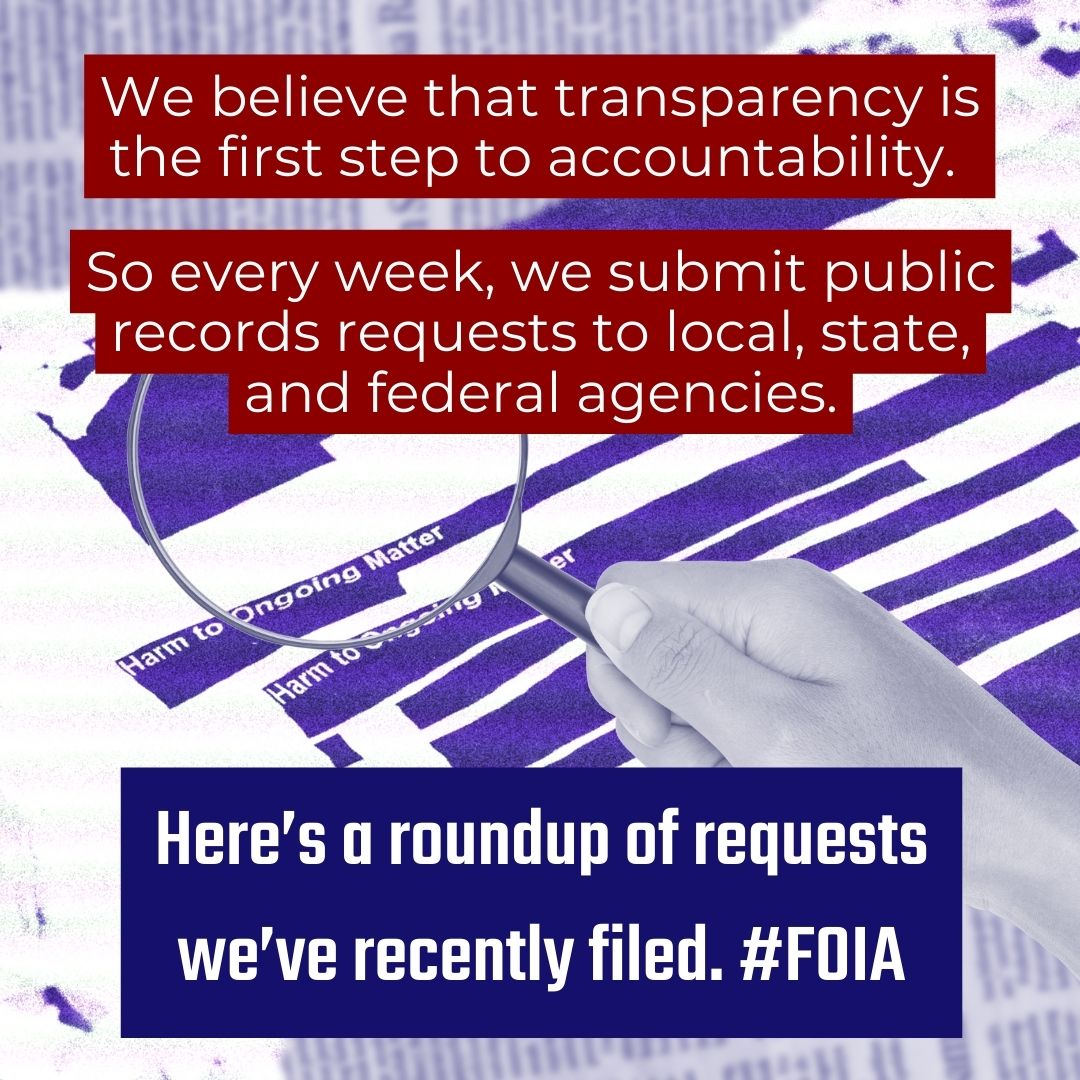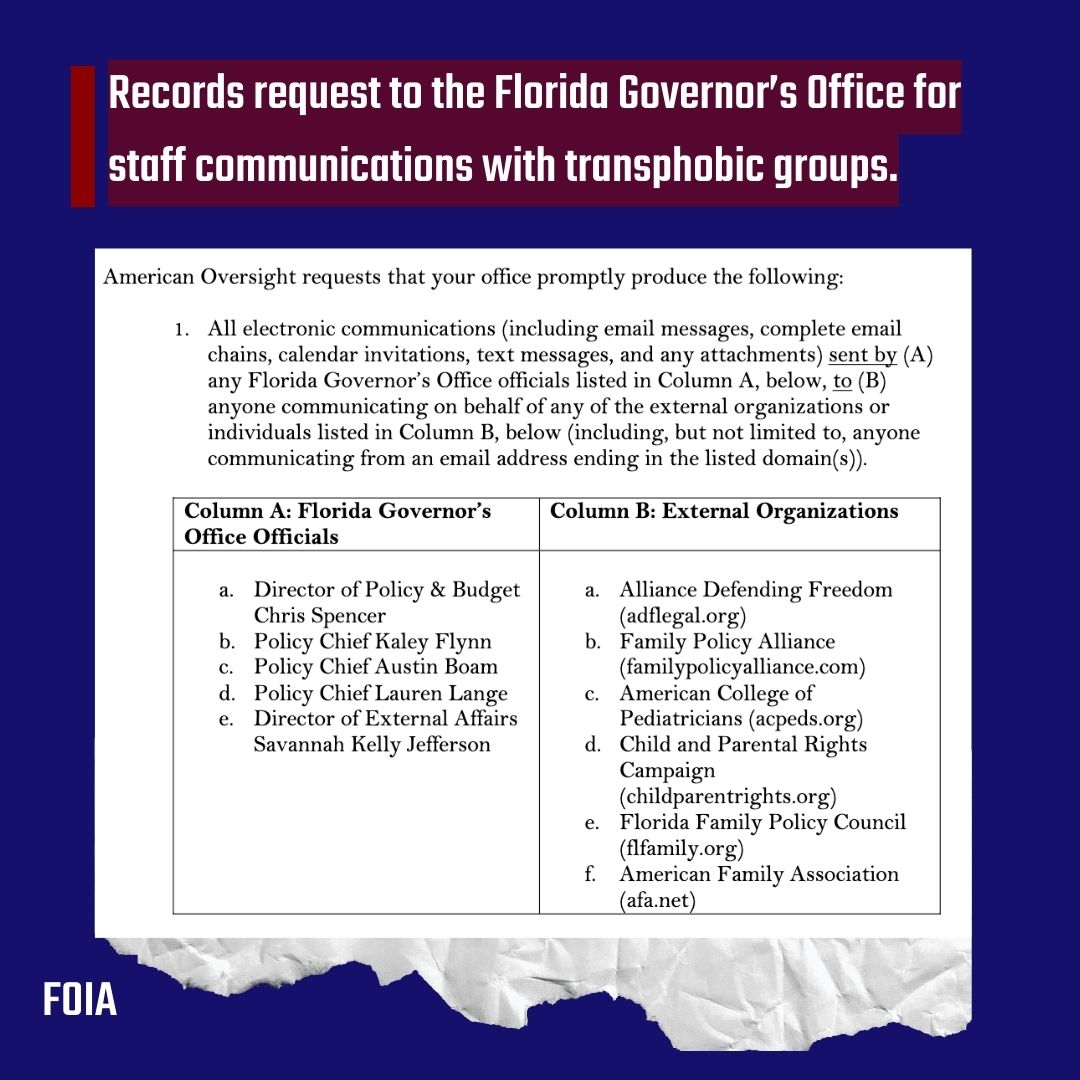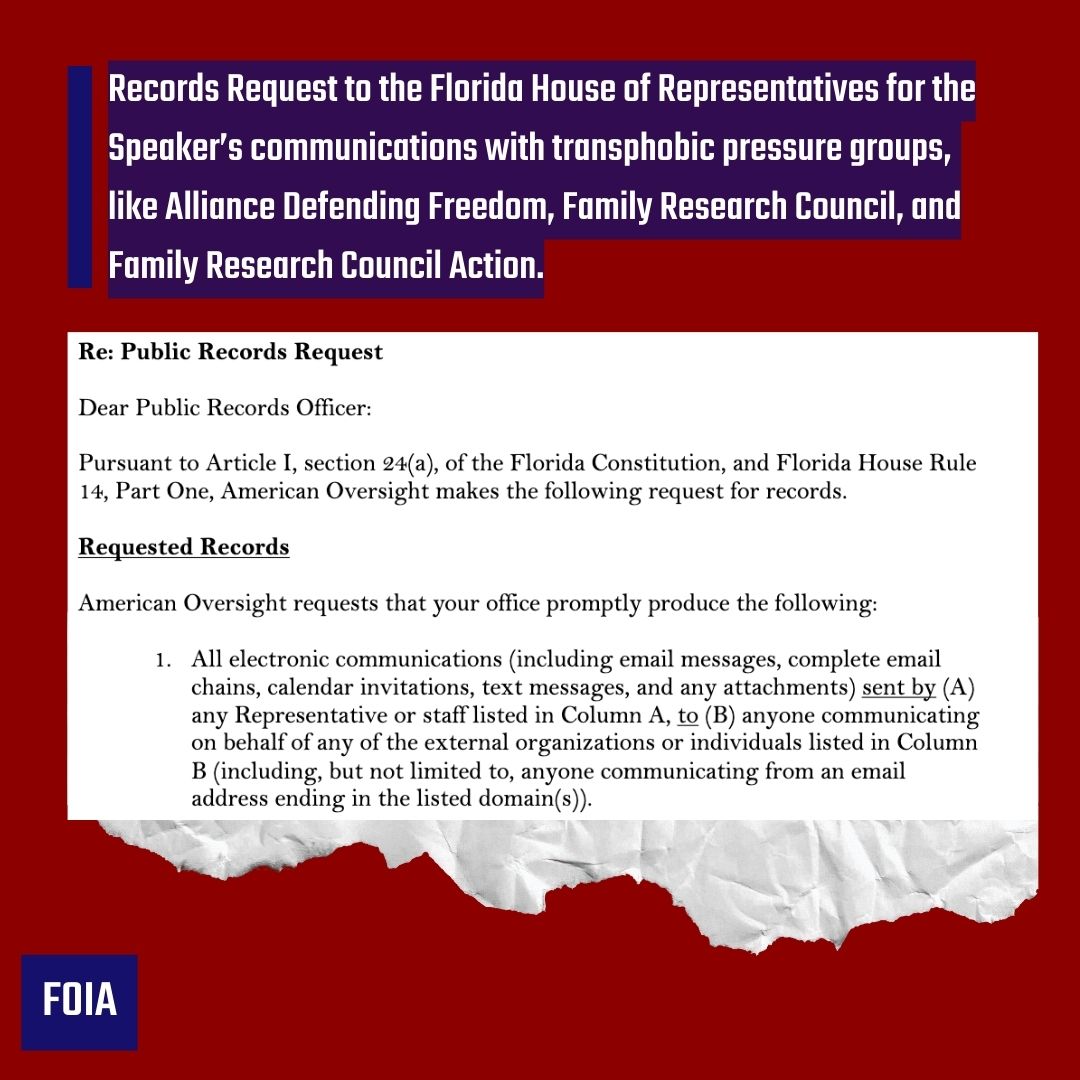
We believe that transparency is the first step to accountability.
So every week, we submit public records requests to local, state, and federal agencies.
Here’s a roundup of requests we’ve recently filed. #FOIA
So every week, we submit public records requests to local, state, and federal agencies.
Here’s a roundup of requests we’ve recently filed. #FOIA

Records request to Missouri Sen. Mary Elizabeth Coleman seeking communications with anti-choice external entities and individuals.
americanoversight.org/document/recor…
americanoversight.org/document/recor…

Records request to the Florida Governor’s Office for staff communications with transphobic groups.
americanoversight.org/document/recor…
americanoversight.org/document/recor…

Records request to the Florida House of Representatives for the Speaker’s communications with transphobic pressure groups, like Alliance Defending Freedom, Family Research Council, and Family Research Council Action.
americanoversight.org/document/recor…
americanoversight.org/document/recor…

Records request to the Arizona Senate seeking records regarding changes to the legislature’s public records retention policy.
americanoversight.org/document/recor…
americanoversight.org/document/recor…

Records request to the Arizona House of Representatives seeking communications regarding changes to the legislature’s public records retention policy.
americanoversight.org/document/recor…
americanoversight.org/document/recor…

• • •
Missing some Tweet in this thread? You can try to
force a refresh







